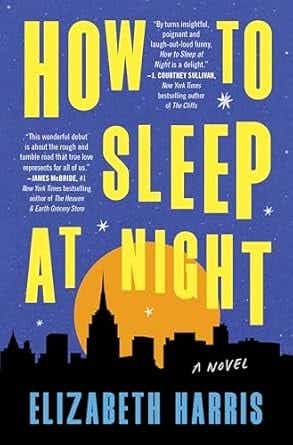Remember simpler times when you could maintain friendships — or even romantic relationships — with someone whose political opinions differed from yours? It feels like Americans are more polarized than ever, and even a quick interaction with someone whose political values oppose yours can feel like an all-out war. In fact, research shows that even though we may agree on many issues, a growing number of Americans harbor dislike for members of the opposing party (or what’s known as “affective polarization”). This growing divide has only gotten bigger in recent years: A September 2020 poll found that 24 percent of Democrats are not friends with anyone who holds very different political views than them — up 10 percent from 2016.
While you might be able to avoid talking politics with Uncle Jim at Thanksgiving, what happens when you and your spouse don’t see eye-to-eye politically? After observing that complicated dynamic in her own extended family, NYT journalist Elizabeth Harris decided to explore it further in a new novel, How to Sleep At Night. With another highly emotionally charged four years in front of us, we asked Harris about what it was like having difficult conversations about politics with loved ones and what she learned from them.
Katie Couric Media: What was your inspiration for writing this book?
Elizabeth Harris: There are a few couples in my extended family who don’t agree politically with their spouses. Over the past few years, I’ve watched as what used to be an annoyance that flared around election season has gotten much harder for them to navigate. But they’re all still married, and I wondered how they did it. We’re all stuck in families (or in a country) with people we disagree with, and we have to figure out a way to live together.
But this book isn’t about politics. It’s about marriage and family and what happens when who we are in the world doesn’t match how we see ourselves.
Tell us about the experience of having extended conversations about politics with people with whom you disagree.
This was an important part of how I did research for the book. I needed to better understand the perspectives of people who disagreed with me or their spouses. I could have watched hundreds of hours of Fox News and MSNBC, but instead, I decided to talk to people in my own family. These are the kinds of conversations most of us try desperately to avoid, but I sought them out. I thought it would be more efficient and, I hoped, less aggravating than cable news.
Did you learn anything from those conversations? Has that research changed your beliefs at all?
Something unexpected happened as I had more of these conversations, going back to the same people again and again: The conversations got easier. We all learned to stay calm. And for everyone involved, it became more difficult to casually dismiss people on the other side, whose views we often see in caricature.
No one changed their party affiliation or anything like that. But having just gotten through the holidays, I can say that even though the research for How To Sleep At Night has long been finished, the lessons my family learned about how to talk to each other have stuck.
Did you find there were points you agreed on?
On occasion we did. But honestly, a lot of us are pretty far apart on most issues, so agreement was rare. Understanding why people believe what they believe was a more realistic goal, and in some ways, I think it's even more important.
When you started writing How to Sleep at Night, did you ever think we’d be looking at a second Trump administration?
I’m terrible at making predictions, so I was only confident that I had no idea what would happen! I didn’t write the novel with any real politicians in mind. But the divisions within families aren’t going away anytime soon, unfortunately, and that seemed worth exploring no matter who was in office.
Do you think in this day and age (and current polarization), it’s possible to have a happy marriage with someone with whom you disagree politically?
I do think it’s possible. I don’t know that everyone could do it — certainly not everyone would want to! But I know people who are making it work.
What advice do you have for people in a similar situation?
This is such a difficult and complicated time, and what worked for my family isn't going to work for everybody. Sometimes the disagreements are too extreme. But for us, it started with me asking questions like a reporter. I wasn't looking to convince anybody; it was research. I just needed information, to understand what they thought and why. This approach tends to make people less defensive because they get to explain how they feel without being judged for it. This is part of how journalists get people they've never met to share sensitive personal opinions while standing on a street corner. Once they weren't feeling so defensive, they were more open to hearing me out. And we all tried to remember that even when we despise each other's leaders, we're all just people doing our best.
What do you hope people learn from your book?
I would love it if How To Sleep At Night gave people some hope. I also just hope they enjoy reading it!














